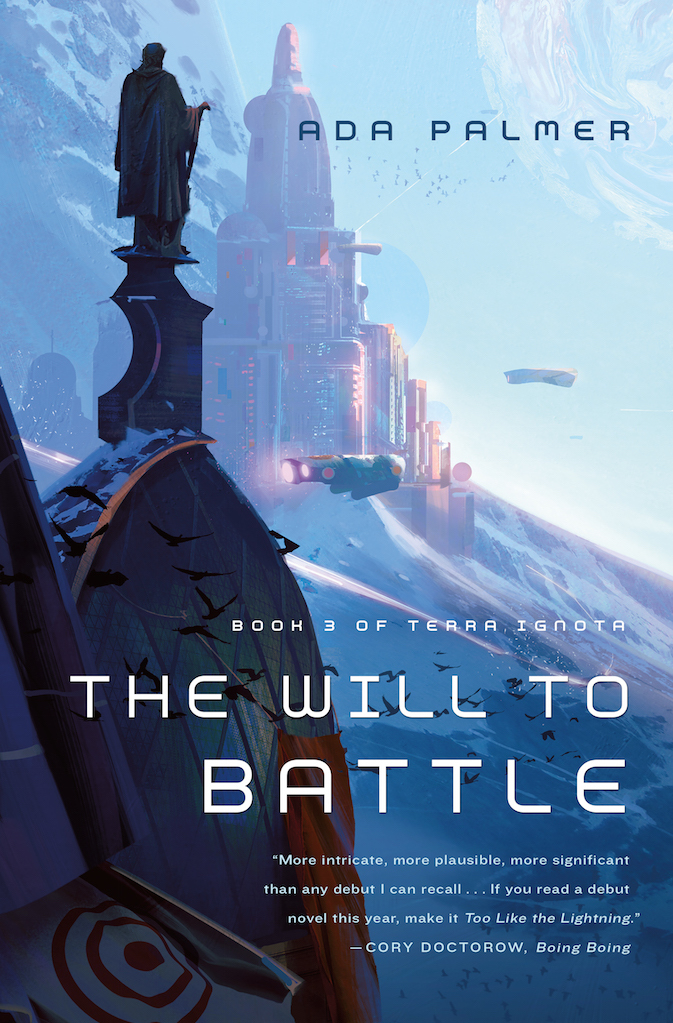Zivan reviewed The Will to Battle by Ada Palmer (Terra Ignota -- book 3)
Review of 'The Will to Battle' on 'Goodreads'
3 stars
I'm conflicted about The Will to Battle, the final 15% are great, but don't really compensate for the endless parliamentary machinations and negotiations of the first 85%.
Yet this is a book about political philosophy and trying to prevent war, so inaction, politics and philosophizing is what it's supposed to do.
It was challenging and I'm sure I didn't understand much of it, but trying to follow the philosophy kept me engaged, though I can't say it was fun, it was even stressful.
The flowery language and dramatic narration were great, but it seams like politicians making major decisions about the future of humanity is triggering for me these days.
I'm conflicted about The Will to Battle, the final 15% are great, but don't really compensate for the endless parliamentary machinations and negotiations of the first 85%.
Yet this is a book about political philosophy and trying to prevent war, so inaction, politics and philosophizing is what it's supposed to do.
It was challenging and I'm sure I didn't understand much of it, but trying to follow the philosophy kept me engaged, though I can't say it was fun, it was even stressful.
The flowery language and dramatic narration were great, but it seams like politicians making major decisions about the future of humanity is triggering for me these days.





